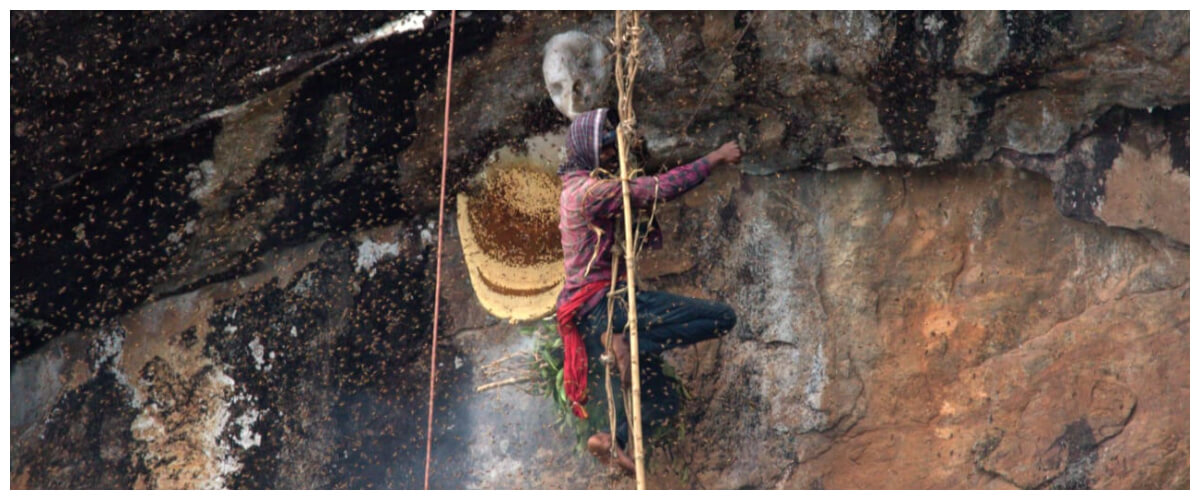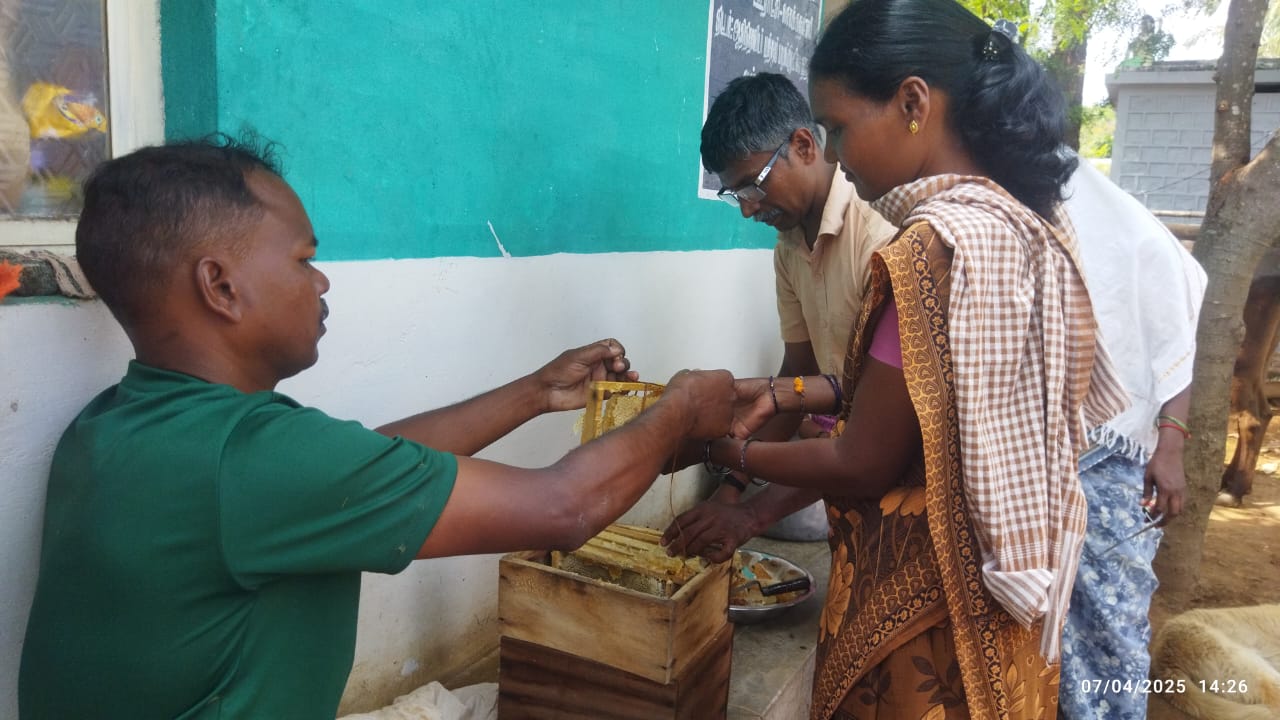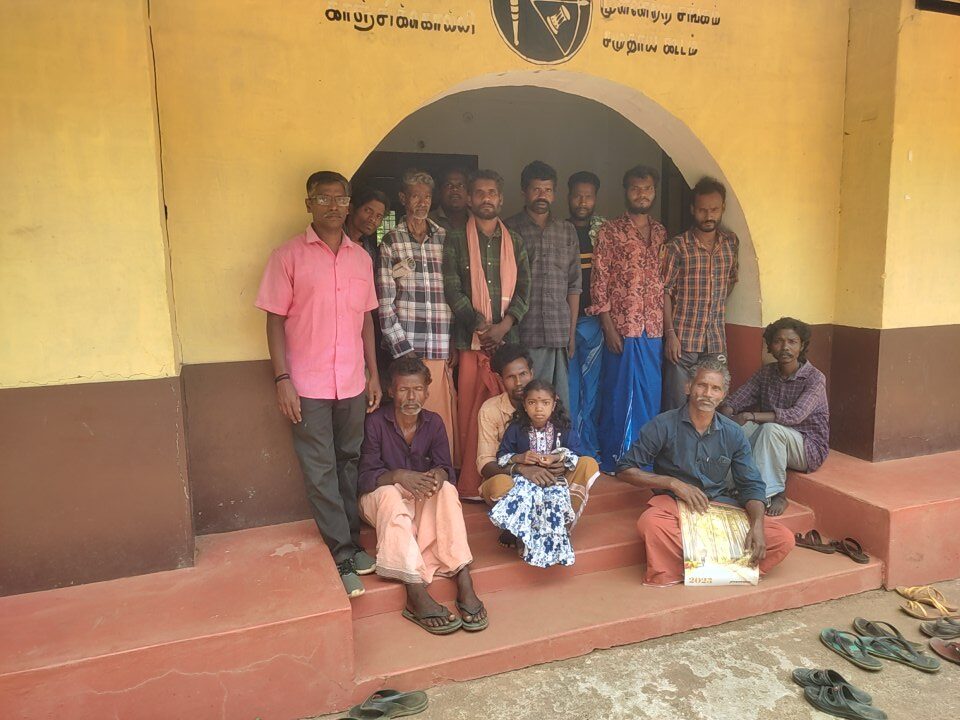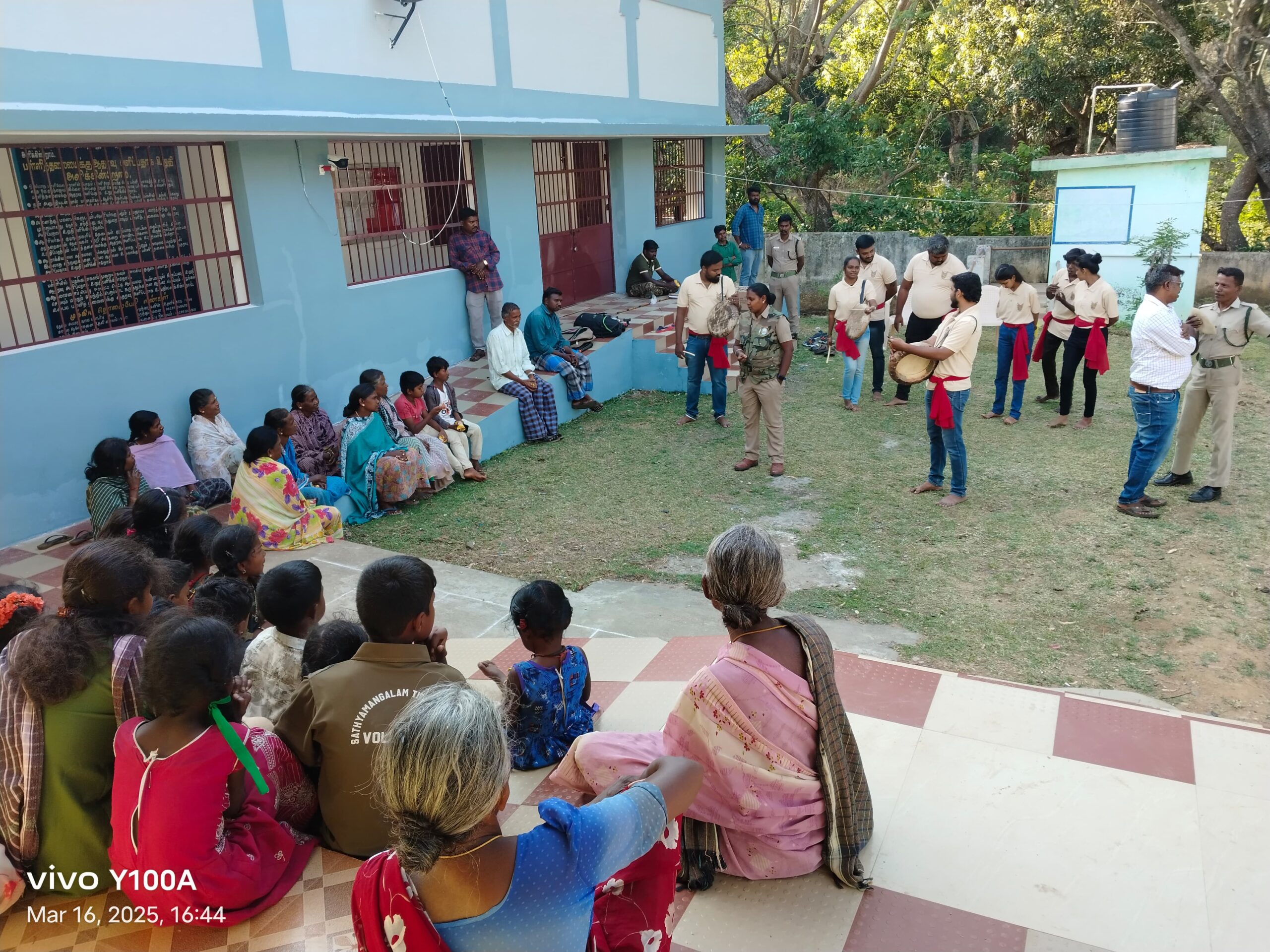“Our lives and culture are always intertwined with these bees.”- quote by Mudhan – a honey hunter from the Irula community in Masinagudi – in a scroll article published in March 2020.

Photo by Chadrasekar Das
The article was published on grass-root organizations that are working with locals to help preserve traditional practices. Justin Raj- a beekeeping expert that works with Keystone Foundation under the Apiculture Programme- expresses his views on traditional honey hunting in the Nilgiris in the article:
“Our job is to ensure that they stick to these sustainable and clean practices through training workshops,” he said. “First, we request them not to touch or attack the queen cell. And as is their traditional practice, if [they] find seven combs, we ask them to harvest only three. We also request them to take out just the honey part and leave the brood with the larvae intact. Lastly, we ask them to wait for over six months to gather mature honey with less water content and less damage to the bees.”
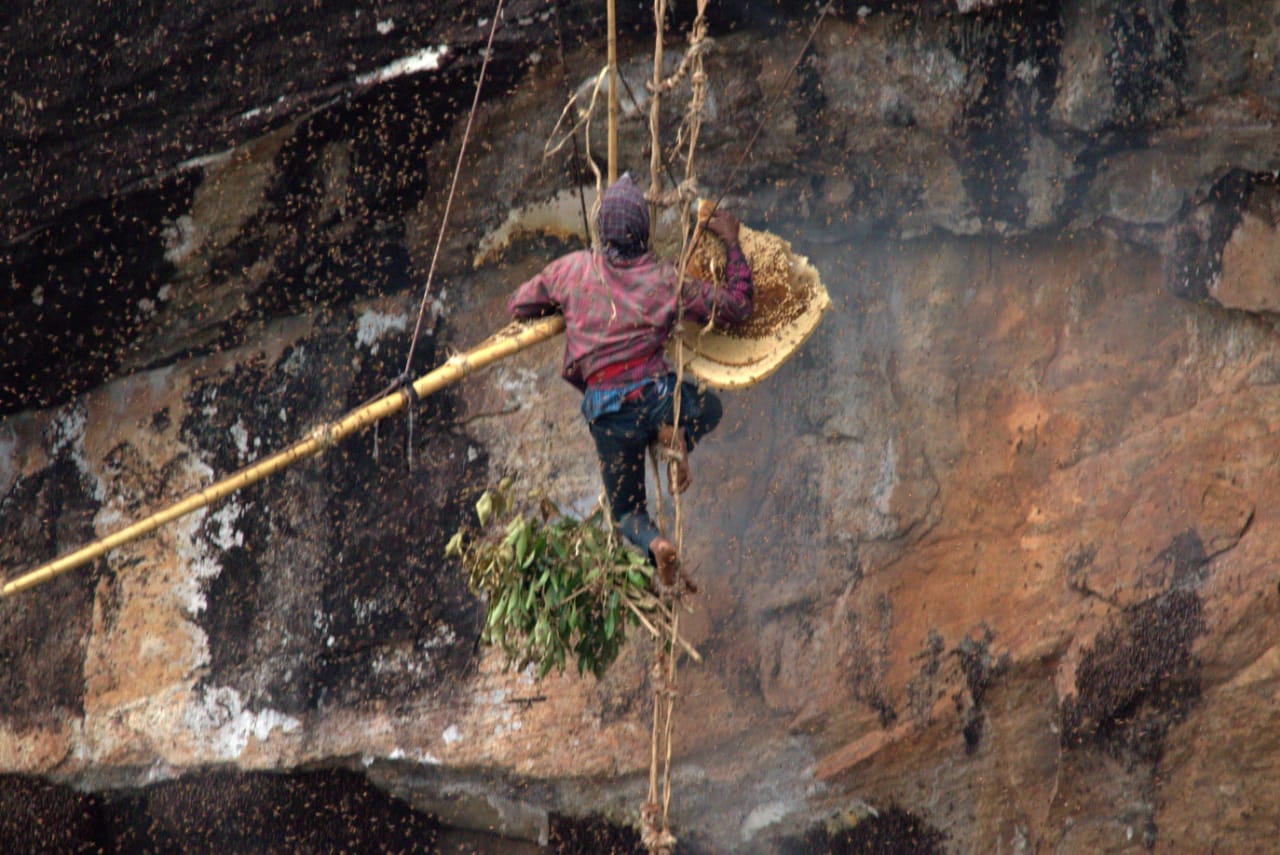
Photo by Chadrasekar Das
While it is important to promote sustainable honey harvesting, it is also equally important to make sure the quality of honey that is being sold in the market remains intact. In a recent Down To Earth article – ‘It’s sugar, honey; and it’s a crime’ by Sunita Narain- the truth about honey being sold in the market is revealed. Instead of paying for honey, people are actually paying for sugar syrup which is being marketed as a healthy alternative to sugar. Not only are consumers being fooled about their health choices but beekeepers are also losing their income due to the crash in the price of raw honey and low-profit margins. Safeguarding the livelihood of beekeepers is very crucial as it is not only intertwined with bees but also the food we eat.

Photo by Chadrasekar Das
At Keystone Foundation, the focus is given to safeguard the age-old honey hunting practices through the sustainable harvest which in turn, ensures a better market price. However, in recent times with the reduction of forest cover, government restrictions and climate change, collection of wild honey is becoming more and more challenging.
That is why the Apiculture team in Keystone is working closely with farmers and interested individuals to promote sound beekeeping practices. Bee-keeping is also incentivizing farmers to convert to organic farming through awareness of the harmful effects chemical agriculture has on bee populations which directly affects food production systems. Interested organic farmers are supported by Keystone Foundation to set up bee boxes in their farms to further help with pollination services and earn an additional livelihood. Beekeepers from some of the working areas of Keystone Foundation- Aracode, Sigur, Pillur, Kookalthorai, Nilambur, Konavakarai, Kotagiri and Coonoor have been identified and trained. In areas like Coonoor and Kotagiri, more focus is given to urban bee-keeping to popularize the concept of beekeeping as well as improve pollination services in these areas which are being threatened by land-use change.

While Keystone Foundation focuses on sustainable harvest of wild honey- sister entities of Keystone- Aadhimalai Producer Company and Last Forest Enterprise focus on collection and marketing respectively. Aadhimalai is a cooperative where all the registered honey hunters are shareholders who receive equal profits and benefits. Last Forest Enterprise is a for profit enterprise that has been in the business of marketing wild honey through stories of diversity, culture and spirit that embodies age-old honey hunting practices. And it is these efforts that still safeguard honey hunting as a livelihood as well as ensures a better market price.

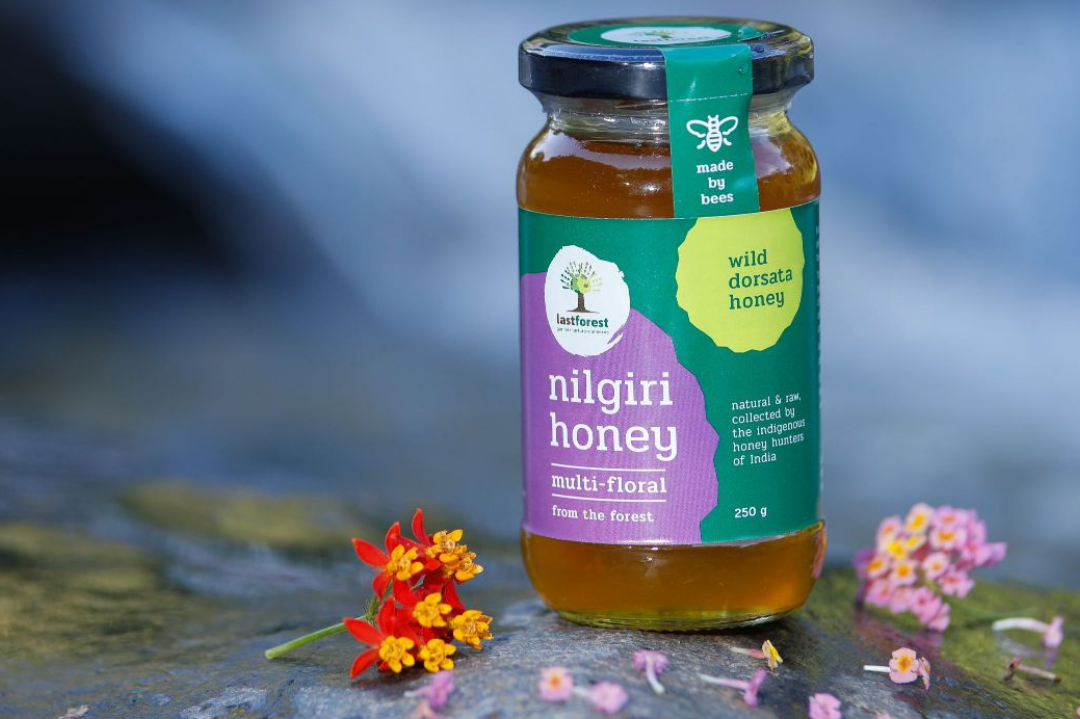
Photo taken by ViaMedia (left) and Suraj Mahbubani (right)
In a recent post, the managing director of Last Forest Enterprise- Mathew John -responds to the CSE’s report on honey quality. He says,
“In all this, it is extremely important to understand the ecological importance of our indigenous bees. They forage on different plants, at different elevations, in different geographies – that is the beauty of nature – this can never be replicated by playing around with products.
I hope that honey is just an example of a product that makes us alive to all that exists around us. That we understand and appreciate when local farmers and harvesters bring food to our table – that we appreciate and value that. That we are ready to pay the `true cost’ of food and not look at large multinationals to subsidize our food.
Partnering with local communities around you to create a sustainable world. Look for products that embody this spirit and support diversity and culture.”
By Nayantara Lakshman

